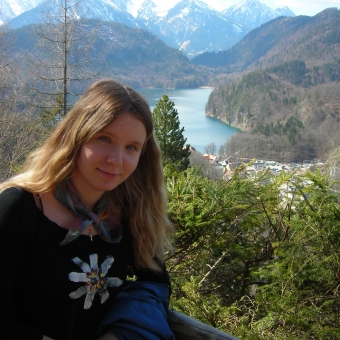
If you are going to learn Spanish or already have some knowledge, you could be interested in receiving a certificate that proves your language proficiency. Nowadays almost all European languages can be tested in the format of international exams that have been created by special institutions. The exam can be taken by everybody, the certificate (if the result is a pass) is recognized in the world.
Spanish has such an international exam as DELE (Diploma de Español como Lengua Extranjera). It is designed and administered by the Cervantes Institute, a scientific and cultural organization that is responsible for promoting the Spanish language and culture. There is a branch of the Cervantes Institute in Russia, Moscow (a branch in St. Petersburg was going to open, but this event was postponed due to the world crisis). You don’t have to go to the capital in order to take the exam. The Moscow University signed agreements with different Russian universities, which gives an opportunity to take DELE in Astrakhan’, Voronezh, Ekaterinburg, Irkutsk, Izhevsk, Kazan Nizhniy Novgorod, Oryol, Omsk, Rostov-on-Don, Saratov, Ulan-Ude, Volgograd, Pyatigorsk and St. Petersburg. Thus this exam is accessible to any Russian.
DELE is available in several levels. It means that a candidate is supposed to determine his or her level before taking the exam and apply for, say, the A1 exam. There are 6 levels according to the CEF (A1, A2, B1, b2, C1 and C2). Each level requires certain language competences (language knowledge, language skills, language experience) that are familiar to any experienced teacher, so it is not difficult to determine the level for sitting the exam. There is also an exam for schools (“Escolar”) that provides tasks up to B1 inclusive.
The approach to a successful preparation for DELE is as follows:
- start preparing in advance: at least 4 months before the exam it is necessary to have regular lessons with a teacher and get in touch with a preparation centre;
- at least 2 months before the exam you need to take a DELE preparation course of the chosen level: only an experienced teacher (the one who has passed the exam is more preferable) can help you deal with the format, the subtleties of the tasks and requirements of speaking and writing. It is also worth going to a Spanish-speaking country or taking lessons with a native speaker of Spanish. But such lessons are recommended along with the exam preparation course since native speaker do not take this exam, therefore they can’t share with you the experience of ‘actually taking it’. At the same time you need to apply for the exam to the exam centre you need. Applying has a deadline, as a rule, applicants need to register one month before the exam.
- You need to choose the exam one level lower than you actually have. For example, if you have been doing a B1 course, you could take DELE A2. If you have been studying on your own, take an online test and have private or group lessons so that your level will be determined by specialists.
- One of the most difficult parts of the exam is listening. It is important to listen to a lot of native speech. Besides, it is not a good idea to listen to only the coursebook audio. You can use television, the radio, podcasts, songs, films (especially documentary, science fiction and historical films), and go to Spanish-speaking countries.
- to pass Speaking successfully, you need to practise a lot. Lessons with an experienced teacher are absolutely vital here. Do not be shy. Make up dialogues on interesting topics, record yourself, then analyze your speech and pronunciation. Try to retell the recent news and interesting articles.
Before 2011 DELE used to have a module which consisted of 2 tasks on grammar, lexis and set phrases (at the advanced level). Now there are no such tasks in the exam, it became more ‘real’, closer to everyday life. So when you are in a Spanish-speaking country, read all the labels carefully, look at the signs and receipts, pay attention to announcements, ads and notices. Listen to what and how travelling companions, passers-by and service staff say. The exam will offer a series of big and small texts of different life spheres that range from ads on a dating website at the A1 level to the leasing contract at the C2 level.
The level determines the type of task.
The exam consists of 4 main modules:
- Comprensióndelectura (reading comprehension)
There are 4-6 tasks (depending on the level). The tasks are based on a variety of texts: from short postcards at the A1 level to extracts from postgraduate theses at the C2 level. We need to choose the best variant out of the variants given, put the extracts into the text in logical order, complete the gaps in the text, complete the words by choosing a grammatically correct variant.
- Comprensión auditiva (listening comprehension)
There are 3-5 tasks. The module includes short messages and long reports, presentations, mini-dialogues and interviews. We complete the gaps, put the information in order, choose the correct picture or answer.
- Expresión e interacción escritas (a summary, an essay or email)
There are 2 tasks except for C2 that has 3 tasks. We need to write a text using the input imformation. It could be forms, message (emails and letters), forum commentaries and blog posts. At higher levels it is necessary to write a text after listening an audio. C2 tests your ability to write a text based on several sources.
- Expresióneinteracciónorales (speaking)
There are 3-4 tasks. The paper gives preparation time (10-20 minutes depending on the level). The test starts with a monologue on the topic (you prepare it), then the examiner and you have a discussion on the topic of your monologue. In the next part the examiner gives you an image (a picture, a photo, a graph): you need ‘to reflect upon’ what you see. Then the examiner joins you, and you both either talk or play the parts of the characters in the picture.
The tasks are interesting and various. The exam texts are on different topics, they are all engaging and useful. Preparation for DELE is always motivating for learners of Spanish, it is a period of expanding vocabulary and grammar recycling.
The most important parts of the exam are listening and writing. The final part is speaking. Normally there is one examiner for the Servantes institute (a native speaker) and one invigilator who monitors the process. There is no need to worry: the mission of the Servantes Instittute is creating positive atmosphere, the examiner will not ‘fail’ you. On the contrary, he will try to help you by asking follow-up questions, simplifying the language and speaking slowly and distinctly. On the other hand, you need to know that each speaking part has its own criteria for assessing vocabulary, grammar, fluency and accuracy. The examiner has clear instructions how to assess your level, he give you marks from 0 to 3. Therefore, during the preparation it is important that you teacher should assess you according to this Servantes Institute assessment scale that exists for each level.
You can check out your results on the official exam webpage by entering an individual code. Each paper has its own minimum, about 75 per cent, which gives good chances. In a couple of months you will receive a new diploma with watermarks and the exam logo. This document will be valid all your life, which is quite beneficial in comparison with such exams as TOEFL).
In order to take DELE A1, A2, B1, you do not have to go to Spain: good knowledge and speaking practice at the lesson in Russia are enough for these levels. To get DELE B2, C1, C2, you need to visit a Spanish-speaking country to get immersed in the language environment, which will help you expand your vocabulary and develop listening comprehension. You will also have to do a special course on business correspondence, to learn how to write and analyze academic and journalistic texts, and make a beautiful monologue on a topic.
The exam can be taken twice a year. In order to find out about the dates of the exam, you need to address the centre you would like to take this exam at. If you have not passed it on your first try, you can take it as many times as you wish. There are no restrictions!
No doubt, learning Spanish is exciting, but DELE may become an additional incentive for a fast and effective acquisition of a new language. Improve yourself, and we are sure that you will pass DELE!
If you are looking for a teacher of Spanish to prepare for the exam DELE, order a trial lessons at Skype-Language.com with the Russian teacher of Spanish or with the Native Spanish teacher,
































